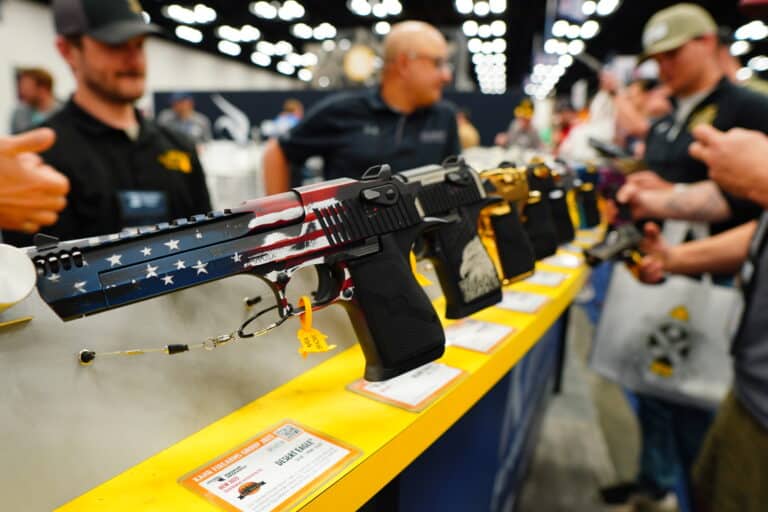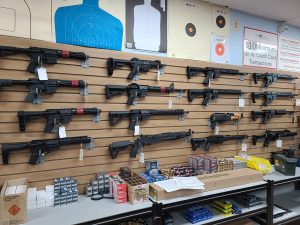A significant majority of the general public support robust legal protections for their public self-defense rights.
That’s according to a new NPR/PBS NewsHour/Marist poll released Wednesday. Nearly six-in-ten U.S. adults said they support laws so-called stand-your-ground laws that “allow people who are in a public place and believe that their life or safety is in danger to kill or injure the person who they think is threatening them,”—up three percent since it last polled the question. More than 80 percent of Republicans and 57 percent of Independents said they agreed with the laws, while only 40 percent of Democrats said the same.
At the same time, the poll identified a broader trend of the public turning against the need to defend gun rights in favor of reducing gun violence. It found 60 percent of Americans now think controlling gun violence is more important, while just 38 percent say the opposite. That’s a significant change from 2013, the year the poll first began asking this question, when the public was evenly split between defending gun rights and curbing violence.
The findings arrive amid broad public concern over violent crime and the ongoing scourge of mass shootings. They indicate an American electorate struggling with how best to balance support for personal protection and public safety in an era in which issues of gun rights have become hyper-polarized along party lines. The split findings suggest that while gun rights advocates have had success pushing policies to ensure strong self-defense rights, they face new headwinds on persuading the public of the importance of the Second Amendment.
The polarization of the issue was clear in the polling as well. Democrats were nine-to-one in favor of controlling gun violence versus protecting gun rights, while two out of three Republicans said the opposite. Independents were more closely divided but skewed against defending gun rights by a margin of 42 percent to 55 percent.
Lee Miringoff, Director of the Marist Institute, argued the results were evidence that “inaction by lawmakers in Washington on the issue of guns is clearly out of step with public opinion” in a release accompanying the poll.
Alan Gottlieb, founder of the Second Amendment Foundation, said he was disappointed that so many respondents were “willing to throw the Second Amendment under a bus to achieve some false sense of security.”
“The right to keep and bear arms is enshrined in our Bill of Rights and most state constitutions for a reason,” Gottlieb said in a press release. “If we don’t protect all of our rights vigorously, pretty soon we will end up with none of them.”
In addition to favoring curbing gun violence, just over 60 percent of respondents said their first reaction to news of a mass shooting is that “this country needs stricter gun laws.” That was roughly the same as when pollsters last asked the question in 2019.
At the same time, the poll found an increased appetite for gun carrying to combat mass shootings. More than one-third of respondents said their first reaction to mass shootings is that more people need to carry guns, up ten percentage points from 2019 when the question was last asked.
In terms of possible policy solutions to gun violence—including “assault weapon” bans, mental health screenings for all gun buyers, background checks at gun shows and private sales, red-flag laws, and allowing teachers to carry guns in classrooms—the poll found broad divisions among the American public.
Just over a quarter of adults, including 44 percent of Democrats, said a ban on semi-automatic weapons like the AK-47 or the AR-15 would have the most impact on reducing gun violence. Just 23 percent of Independents and 13 percent of Republicans agreed. Respondents aged 18-29 were the least likely to think a so-called assault weapon ban would help (15 percent), while the oldest respondents aged 60 and up were the most likely (37 percent).
Republicans and Independents were most likely, each at 20 percent, to say that mental health screenings for gun sales would have the biggest impact. Republicans were also more likely to support allowing teachers to carry firearms in schools. A significant portion of respondents, about one in five, said they didn’t believe any of the policies would have an effect on gun violence.
The NPR/PBS NewsHour/Marist poll surveyed 1,286 adults and was conducted from May 15-18. It has a margin of error of +/- 3.4 percentage points.






